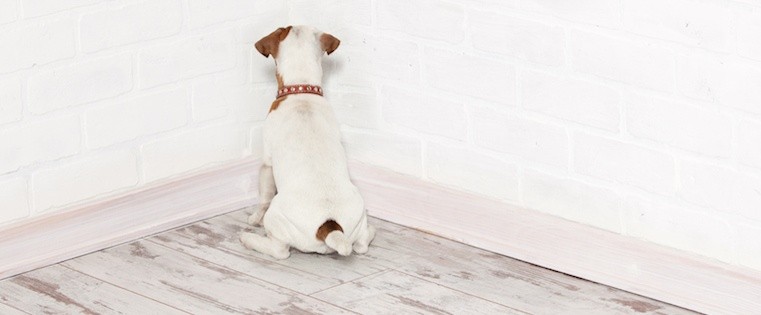
07 Sep 7 Ways You're Letting Guilt Sabotage Your Work
[ad_1]

When was the last time you felt bad about something you did — or didn’t do?
For me, it happened about 30 minutes prior to typing this sentence. I left the house later than I had planned, because I allowed extra time for my workout. I felt guilty for dedicating time to my own stuff, when I knew I had a looming deadline.
But guess what? Yesterday, when I skipped my workout to get to the office earlier, I felt bad about that, too.
I can sense the proverbial chorus nodding in unison with me. That’s because guilt is an epidemic — in fact, one in five people cite it as the reason why they don’t take breaks. And it’s killing the quality of our work.
Many of us accept that as common sense — overwork = underproductive. So why do we continue to self-sabotage and feel bad about the time we don’t spend getting things done? Read on to learn the different ways we let guilt overtake our productivity, and why we do it.
7 Ways You’re Letting Guilt Sabotage Your Work
1) You feel like you can’t take a break.
The correlation between workplace happiness and productivity isn’t exactly news at this point. And yet, we continue to ignore that advice.
A survey conducted by Staples, for example, showed that 90% of employers say they encourage breaks. But here’s the thing — 55% of employees feel like they can’t leave their desks for one. It’s not like we don’t know any better, though. In that same survey, 86% of workers acknowledged that taking a break would make them more productive.
So what’s stopping us?
I‘ve definitely experienced mixed feelings about leaving my desk frequently throughout the day. What if my colleagues think I’m weird, or that I’m not getting my work done? In today’s workplace, we’re big on perception.
Luckily, I work somewhere that encourages taking that time to breathe, and has resources in place to support it. Maybe that’s why Staples Advantage, the division that conducted the aforementioned survey, says that employers need to play their part in creating a break-taking culture.
Even if employees are fundamentally encouraged to take breaks, putting tangible resources behind it will create the cultural shift that really allows them to step away. Something like a break room goes a long way — 76% percent of respondents said that having a well-equipped one would help relieve stress throughout the workday.
And the result of that relief? Getting more done, with higher quality. According to data collected by DeskTime, the top 10% most productive employees take 17-minute breaks for every 52 minutes of work they put in. And during those periods, they use hyper focus: No work during breaks (that includes email), and no distractions during the work time.
2) You feel bad asking for help.
Earlier this year, New York Times Magazine did a great job of summarizing the fine line between stress and guilt.
Guilt, Susan Dominus wrote, is “an especially corrosive form of distress: It’s that feeling that nags at you as you rush into the office, sweating, knowing that you are already late, or as you slip out for a ‘meeting’ that is, in fact, a much-needed haircut appointment.”
Lying about the time we put toward self-care indicates how guilty we feel for acknowledging that we need it. So maybe that’s why we feel like we’re falling short when we can’t do everything ourselves.
In turn, that makes us less likely to ask for help. In a survey of working mothers, Care.com found that 29% of respondents felt guilty about hiring someone to assist with things at home — they feared missing out on important moments, for example. But at the same time, 79% of them also felt like they were falling behind at work.
The guilt had multiple sources. That’s the case for many of us — not just working moms.
It makes sense that 75% of these survey respondents also saw an overall reduction in stress when they did hire outside help. That’s not limited to home or family care — asking for help at work, too, can be hugely productive.
In fact, that’s something my own boss told me on my first day at HubSpot: “To help you be more successful, I’ll help you with whatever you ask me for help with. The most successful people ask for help when they need it!”
I wish everyone’s boss would say the same thing. Because she set that tone for me from the very beginning, I knew that I didn’t have to feel guilty about not knowing something, or not being able to do something completely on my own. So don’t be afraid to ask for help. Chances are, the person you need it from is happy to step in.
3) You’re comparing yourself to everyone else.
We all have those friends — or distant acquaintances who we observe on social media — who seem to have the so-called “perfect life.” And many of us are sometimes guilty of comparing our own lives to theirs, wondering if maybe — had we just done things a little differently — we, too, could have the perfect life.
It’s no wonder, then, that 62% of folks think that their peers are holding it together better than they are. When we perceive that someone is doing a better job than we are, we feel guilty or inadequate.
In the past, I’ve had to remind myself that anyone’s life can look perfect on the outside — especially on social media. I like to think of Facebook, for example, like tabloids. People can paint any picture they want, and post it for the world (depending on their privacy settings) to see.
And even if someone else really is doing things “perfectly,” which is completely subjective, feeling guilty about how your performance stacks up to others’ is a waste of time. And we’ve already talked about how to use our time productively — squandering your precious minutes comparing yourself to others isn’t going to accomplish anything of value.
4) You have Vacation Shame.
Remember earlier, when we talked about how many of us feel bad taking time for ourselves? Vacation is no exception.
In fact, that phenomenon has a name: “Vacation Shaming.” It was coined by Alamo Rent A Car after the company’s annual Family Vacation Survey revealed that 47% of workers feel shame or guilt at work for taking that time off. The same percentage feels the need to justify using their vacation days to their employer — even if they’ve earned it.
There are certainly other reasons — financial ones, especially — why people don’t go on vacation. Nonetheless, 28% of people don’t take advantage of paid time off because they’re afraid they won’t look as dedicated to their work.
But that logic is kind of counter-intuitive. I mean, for all intents and purposes, managers place the most value on your productivity, right? And in regions where people tend to take more vacation (like Brazil and Sweden, where paid time off is mandatory), employees tend to bring greater urgency to their work.
That could be due to the fact that, according to the Harvard Business Review, “spending less time at your desk forces you to waste less time.” That echoes the research done by DeskTime about the productivity levels of people who take regular breaks.
Simply put: Don’t feel bad about giving yourself the opportunity to step away, whether for a few minutes or a few days. It’ll enhance your productivity while you are at work, and give you a chance to decompress when you’re not.
5) You’re just not busy enough.
How many of you out there work best under pressure?
Me. I do. I have never met a deadline I didn’t like. Am I insane? Probably. But also, I just don’t get as much done when I’m not bound by a timeline.
As it turns out, I’m not alone. In a study published in the Journal of Personality and Social Psychology, it was reported that people feel more motivated to complete tasks when they’re busy — even if the deadline to get it done has passed.
“Being busy may make people more likely to fail to achieve a specific goal,” the authors report, but “it can also make people more likely to achieve the goal by augmenting the perception that a different goal [like using one’s time effectively] is being achieved.”
In other words, when we mess up as a result of having too much to do, we don’t feel as guilty about it. After all, it’s not like we were sitting around doing nothing — we were being productive. But when we make a mistake and don’t have the excuse of our industriousness to fall back on, we feel bad.
Staying busy at work might seem like a tall order when only 31.5% of us — in the U.S., at least — are actually engaged there. But there are ways to keep up your motivation and productivity, which my colleague Lindsay Kolowich wrote about here.
6) You have action bias.
We’ve all had friends who have gotten a bit upset with us at one time or another. When that happens, the best thing is to step away and give her space, right? I don’t do that, and that’s because I have action bias.
Also known as a “bias for action,” the Business Dictionary defines action bias as the “propensity to act or decide without customary analysis or sufficient information,” or to “’just do it’ and contemplate later.”
It reminds me of something that a leadership professor said to me about extroverts: “We tend to operate in the order of: Ready? Fire! Aim.”
We’re all about taking action and getting things done, before all else. So when our time has to be spent on something other than our most essential tasks, or even inaction — like in the case of our angry friend — we freak out.
Kolowich has experienced something like this. “In the past, I’ve felt guilty whenever I’ve been doing work that doesn’t have measurable output, like brainstorming, strategizing, and even catching up on industry news,” she told me. (She writes more about these biases here.)
“Ironically, that can make you less productive because you’re less thoughtful in approaching the work you do do,” she continued. “I’m far more productive when I take the time to understand a project and plan it out rather than jumping right in.”
That’s why it’s valuable to take the time to be thoughtful when it comes to your work, and even take the time to reflect on it. On the surface, that might seem like a waste of time, but it can actually be tremendously beneficial.
Take this a Harvard Business School study, for example. A team of employees was divided into two groups. The first was instructed to spend the last 15 minutes of the workday writing their reflections. The other group kept working during those 15 minutes. When each group took a final training test, the one that spent the extra time reflecting performed 22.8% better than the one that worked longer.
It might seem counter-intuitive, given our advice above about deadlines and staying busy. And we get it — for those of us with action bias, according to a Barclays white paper, “inaction can make a stressful time even worse.”
But you can be industrious and also be patient, without feeling bad about it. Even when a deadline is present, take the time you need to bring quality to your work — you’ll be glad you aimed before you fired.
7) You’re experiencing the Zeigarnik Effect.
“The what?”
The Zeigarnik Effect. Merriam-Webster defines it as “the psychological tendency to remember an uncompleted task rather than a completed one.”
Sound familiar?
At the end of the day, no matter how productive we’ve been, it seems like we always dwell on the things we didn’t get done. So maybe we can chalk it up the aforementioned Effect, named for Bluma Zeigarnik, the Russian psychologist who found that having a task interrupted can actually improve the focus you put toward it later.
That’s good news — and it supports the advice to take breaks and step away from your work, without feeling bad about it. And even though I’m a repeat offender of what we’ve discussed, like action bias, I actually have experienced the value of letting a task go until the next day.
I find that to be particularly applicable to writing. Of course, I have deadlines to meet, but every time I let an article “marinate” overnight, I see multiple things I want to change in the morning — and in the end, I’m actually glad I put it off, despite not feeling great about letting it go “unfinished” the night before.
It probably took you a few minutes to read this blog, right? It likely took time out of your day. But hopefully, the time you spent reading it — and next, thinking about it — will actually help you bring more focus and less guilt to your work.
How do you keep guilt from getting in your way? Let us know in the comments.

[ad_2]
Source link
Social Media Agency, Social Media, Digital Marketing, Digital Marketing Agency, Search Engine Marketing, SEO, digital marketing agency dubai, video content marketing, crossfit marketing dubai, video marketing dubai, digital marketing agency abu dhabi, facebook marketing dubai, facebook marketing abu dhabi, digital marketing agencies in dubai, social media agency, content marketing dubai, content strategy dubai, branding dubai

